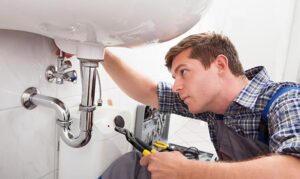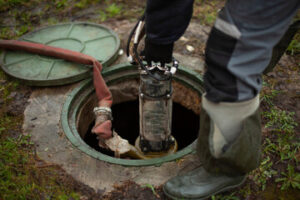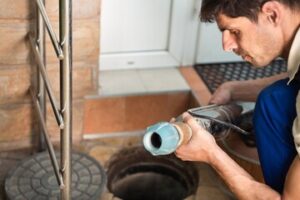Plumbers Medina covers all aspects of installing, repairing, and maintaining plumbing systems in restaurants, hotels, retail stores, and office buildings. These systems are bigger, more complex, and often used more than residential systems.
For this reason, they require different maintenance and care. In addition, there are several other key differences between commercial and residential plumbing that every plumber should know about.

Larger buildings, such as shopping centers and office buildings, require larger plumbing systems to support the occupants. These systems must handle more water usage and have more complex pipes, fixtures, and appliances. In addition, these systems must adhere to health regulations that may be more stringent than those for homes.
Commercial buildings also typically have a lot more rooms than residential properties. This means more sinks, toilets, and other appliances must be serviced. It can also mean clogs and other problems are more common in these environments.
For example, if a restaurant has a kitchen sink with a drain that gets blocked up frequently, this can be a huge problem for the entire building. Commercial plumbers must be able to quickly identify and fix these issues before they lead to widespread damage or even a complete shutdown of the system.
Another issue is that many commercial buildings are multi-stories. This creates a whole new set of challenges for commercial plumbing. For one, reaching all fixtures can be more difficult because the pipes are farther apart. It also can be challenging to determine where a leak or other problem is coming from when multiple stories are involved.
Finally, it’s important for commercial plumbing to consider the role of air in the system. This is especially true in high-rise buildings. Without adequate airflow, it can be impossible for drainage systems to function properly. This can result in slow draining, low water pressure, and even gurgling noises from the pipes. It’s important for plumbers to know how to address these issues and to understand the challenges that can come with working in high-rise buildings.
Commercial plumbing is required to service a lot more people than residential plumbing. This is because buildings like office complexes, restaurants, and hotels tend to be much larger than houses. Additionally, they usually have many more toilets, sinks, and fixtures than residential properties. As a result, they have to deal with a higher volume of waste products that need to be properly removed.
This also means there’s a greater chance of things going wrong with these systems because of how often they’re used. For example, if a toilet gets flushed down without anyone paying attention, it could cause a big clog that must be fixed immediately. In addition, a restaurant’s kitchen might have a system of drains that handles food waste and grease. This can lead to a build-up that causes blockages over time.
Another thing to consider is that commercial spaces operate on a strict schedule. Any repairs must be completed within a certain window because otherwise, it could cost the business money. For this reason, commercial plumbers need to have great communication with their clients so they can understand how urgent a situation is and work quickly to address it.
In working with large numbers of customers and employees, it can be challenging for a business owner to keep up with all the different responsibilities of running a company. This is why it’s a good idea to use project management software for construction to help you manage your tasks more efficiently. By doing so, you’ll be able to ensure that all plumbing jobs get done promptly and that your team is staying on top of their work.
Commercial plumbing deals with larger and more complex water systems than residential spaces. These systems must be able to handle high usage and are often subject to more stringent regulations. This makes them more challenging to maintain and repair.
Commercial spaces, such as offices, hospitals, hotels, and shopping centers, need plumbing to accommodate constant use and multiple users simultaneously. Despite this heavy load, these systems must provide adequate water supply and waste removal. As a result, they tend to wear out faster and require more frequent maintenance and repair.
When a commercial system wears out, it can have significant implications for the business. For example, a hotel might lose revenue because guests cannot stay during repairs. Commercial plumbers need to understand the importance of proactive maintenance and repair.
In residential spaces, detecting running water and small leaks is usually easier because homeowners regularly use the plumbing. However, these issues might need to be addressed in a commercial area with multiple floors and many sinks, toilets, and urinals. This can lead to serious water wastage and hefty bills.
Whether it’s an office building, hospital, restaurant, or retail space, there is much more to these plumbing systems than meets the eye. This is why commercial plumbing services are required to service them more frequently and comprehensively than their residential counterparts. The more complex the plumbing system, the more likely it is to experience problems. In these instances, it’s best to have a commercial plumber on call to resolve the issue quickly and efficiently.
Commercial plumbing requires more expertise, education, and skill than residential plumbing. It’s more complex due to bigger buildings, interconnected water systems, sophisticated equipment, and potential problems. In addition, many commercial spaces require industrial-grade pipes and appliances to handle high water usage and temperatures.
For example, the Burj Khalifa Tower uses over 249,908 gallons of water daily, distributed across its 163 floors. Commercial plumbing needs to ensure these high volumes are handled efficiently, preventing disruptions to business operations and minimizing potential health hazards.
Other examples of higher standards include installing backflow prevention devices to prevent contaminated water from entering the main water supply or ensuring fixtures are installed with proper drainage systems to avoid clogs and overflows. Additionally, commercial plumbing regulations often require minimum accessibility and functionality for all occupants, including those with disabilities.
Maintaining plumbing codes and standards is important for commercial buildings, as non-compliance can result in costly fines or legal battles. In addition, adhering to plumbing codes can help businesses save on their water bills by reducing waste and increasing efficiency. It can also improve their reputation among customers, clients, and other stakeholders, demonstrating a commitment to quality and professionalism. Finally, plumbing codes can help businesses avoid unnecessary repairs and maintenance by identifying and addressing issues before they escalate into major disasters. Regular inspections and maintenance are also important to complying with plumbing codes. This can help reduce operational disruptions, improve the longevity of plumbing systems, and save money in the long run by identifying minor issues before they become more serious. Ultimately, business owners must understand and adhere to the requirements set forth by their city, state, and country’s plumbing codes and regulations.
Unlike residential plumbing, commercial spaces are more regularly used for longer periods and require regular maintenance to ensure they operate efficiently. This can include backflow prevention, detecting water leaks early, and optimizing water flow and temperature regulation. In addition, upgrading plumbing systems to improve efficiency and extend the lifespan of pipes and fixtures can save businesses on energy bills and reduce water waste.
With the right tools and resources, a plumber can easily meet the unique needs of commercial buildings. These include high-rise office buildings, shopping centers, warehouses, restaurants, and hospitals. These spaces typically have more outlets, toilets, and sinks than residences and often come with larger pipes and more complex appliances.
Commercial plumbing can also have additional requirements due to strict hygiene laws. This may include sanitizing drains, sinks, and toilets to prevent contamination. It can also involve installing specific water filters to remove contaminants. The system must also handle a higher volume of water usage than a home and support the weight of multiple stories of people walking through the building.
Offering 24/7 emergency services can expand a plumbing business’ customer base and increase revenue. It can also help build a reputation as a reliable and trustworthy service provider, leading to more referrals and repeat customers.
Managing a successful commercial plumbing business requires keeping an eye on the key metrics that drive success, such as first-time fix rates, customer satisfaction, and revenue growth. Using field operations software can help improve these metrics and provide better customer experiences while increasing team productivity. In addition, implementing loyalty programs can encourage repeat customers and help grow the business.




